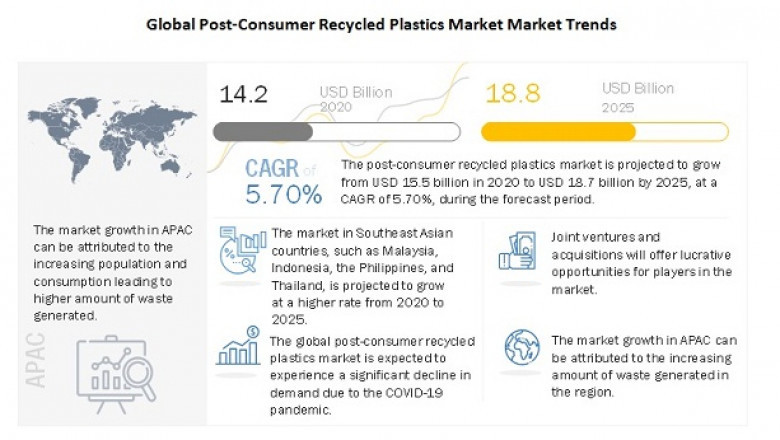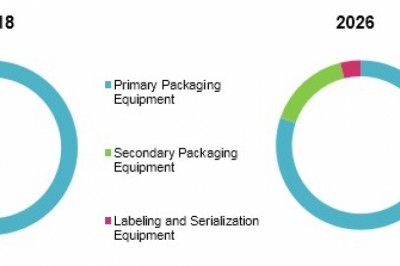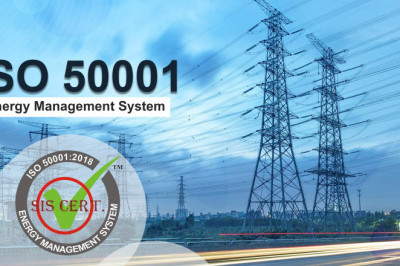views

The global post-consumer recycled plastics market size is projected to grow from USD 14.2 billion in 2020 to USD 18.8 billion by 2025, at a Compound Annual Growth Rate (CAGR) of 5.7% during the forecast year. Post-consumer recycled resins or plastics are obtained by recycling the plastic waste collected from consumers. Consumer plastic waste includes bottles, films, and foams. Post-consumer plastic waste management includes recycling, recovery, and disposal of plastic waste. Additionally, waste management systems ensure the safe collection, segregation, storage, transportation, processing, and disposal of generated plastic waste. Post-consumer recycled resins also ensure that no harm is caused to the environment during this process and that the process is undertaken in accordance with the regulations and standards prescribed by governments or associations.
The post-consumer recycled resins market has several large companies operating in the market. A few of the major players are, Veolia Environnement S.A. (France), SUEZ (France), Waste Management Inc. (US), Republic Services Inc. (US), and Stericycle Inc. (US). The other notable players in the market are Biffa (UK), Clean Harbors (US), Remondis SE & Co. KG (Germany), DS Smith (UK), and Waste Connections, Inc. (US)..
Joint ventures & partnerships accounted for the largest share of all the strategic developments that took place in the post-consumer recycled market between 2016 and 2020. Key players such as Veolia Environment (France), Suez (France), Republic Services (US), and BIFFA (UK) adopted these strategies to enhance their business, market presence, to develop new products, and meet consumer demand in the post-consumer recycled plastics market.
Veolia Environment (Veolia) is a global provider of environmental management services. It is engaged in the management of waste, water supply, and distribution systems. Veolia is among the key global players that provide solutions for the management and recycling of solid, liquid, non-hazardous, and hazardous waste. It is engaged in the entire lifecycle of recycling management from collection to recovery of waste. The company is actively involved in turning waste into materials through its recycling processes.
The company also recycles televisions and cellphones in Anger (France), where these consumer goods are disassembled and used to provide new resources, such as high-quality polymers (plastics). These resources are suitable for use as secondary raw materials among leading manufacturers of household appliances in the country to create new products that include bathroom scales. The company’s subunit–Rostock recycles one billion plastic bottles, where every year, 200 billion plastic bottles are produced worldwide for juice, soda, household cleaning products, and various other uses. Veolia’s treatment and recycling facility in the port of Rostock, northern Germany, recycles 1 billion plastic bottles a year. That is the equivalent of saving 31,000 liters of crude oil.












